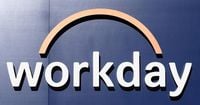The U.S. Office of Personnel Management (OPM) has awarded a sole-source contract to Workday, a cloud-based HR services company, amidst a backdrop of urgent operational failures within the agency. This decision, announced on May 2, 2025, bypasses the usual competitive bidding process due to pressing federal mandates and aims to modernize OPM's fragmented and outdated HR systems.
As OPM grapples with a significant influx of HR work, including processing federal retirement applications and managing reductions in force (RIFs), the agency justified the sole-source contract as necessary to address what it termed an "urgent confluence of operational failures and binding federal mandates that require immediate action." According to a memo published by OPM, the agency's existing HR systems have reached a critical failure point, resulting in payroll errors, benefits disruptions, and an unsustainable manual workload.
"OPM’s fragmented and outdated HR systems have reached a critical failure point, resulting in payroll errors, benefits disruptions, and a manual workload that is no longer sustainable," the memo stated. Furthermore, recent presidential directives impose strict deadlines for workforce restructuring and merit-based hiring reforms, which OPM's current systems cannot meet.
The contract with Workday, valued at $342,200, will cover a wide range of services, including HR and personnel processing, payroll and benefits systems, time and attendance tracking, talent acquisition, and performance management—all while ensuring compliance with federal requirements. Workday has been recognized for its capability to handle large-scale operations, having previously partnered with major corporations like Walmart.
At the same time as the contract award, OPM issued a memo stating that agencies utilizing the National Finance Center (NFC) or the Interior Business Center (IBC) for payroll and HR services must submit all retirement paperwork electronically starting June 2, 2025. After July 15, 2025, OPM will no longer accept paper submissions and will only process retirement applications through its Online Retirement Application (ORA).
OPM is aiming to have the Workday contract operational by July 15, 2025, coinciding with the lifting of the current government-wide hiring freeze. This timing is critical, as the agency anticipates a doubling of the retirement application backlog due to an increasing number of federal employees opting into the Voluntary Early Retirement Authority (VERA) and the second round of the deferred resignation program (DRP).
In its justification for the sole-source award, OPM noted that without immediate action, the agency's current HR systems would require substantial manual labor to develop RIF registers and would be unable to maintain service quality amidst the expected surge in retirement applications. The agency has experienced a systemic breakdown in its HR, payroll, and benefits infrastructure, as evidenced by payroll errors, retirement processing delays, grievance filings, and serious data reconciliation failures.
Despite the urgency of the situation, some employees within OPM have expressed skepticism regarding Workday's ability to manage the complexities of federal payroll systems. One employee, speaking anonymously, stated, "This could either transform the way government does HR or completely backfire and make things far worse. And in my humble opinion, it’s going to be the latter. I think this will backfire." This sentiment highlights the concerns regarding the reliance on a sole-source vendor for such a critical function.
OPM's move to modernize its HR systems aligns with broader efforts spearheaded by Elon Musk's Department of Government Efficiency (DOGE), which has sought to streamline federal operations and reduce the workforce. Approximately 260,000 civil servants have resigned, retired, or been dismissed under this overhaul, which the DOGE claims has saved U.S. taxpayers $160 billion, despite facing scrutiny over accounting inconsistencies.
Workday's selection for the contract has not been without controversy. Some current and former employees have described the process as unusual, given that the company was awarded the contract without competitive bidding in an industry that includes other capable providers like ADP and SAP. Dayforce, another competitor, expressed interest in the project but ultimately was not chosen.
OPM's memo indicated that a full and open competition would delay the project by six to nine months, which would jeopardize compliance with the White House's deadlines. The agency argued that Workday's unique combination of features, including its experience with large-scale implementations and its ability to provide a comprehensive cloud-based HR solution, made it the only viable option to meet OPM's immediate needs.
As OPM moves forward with the Workday contract, it also aims to set a precedent for other federal agencies. The agency's decision is expected to influence how HR systems are managed across the government, as it seeks to implement a commercially available and cloud-based product that could serve as a model for others.
Overall, the OPM's contract with Workday represents a significant shift in how the federal agency approaches human capital management. The agency's reliance on a sole-source provider raises questions about the future of competitive bidding in government contracts, especially in light of the urgent operational challenges it faces.
As the deadline for implementation approaches, OPM is under pressure to ensure that Workday can deliver on its promises and effectively address the systemic issues plaguing its HR systems. The success of this contract could serve as a benchmark for future federal HR initiatives and the modernization of government services.




